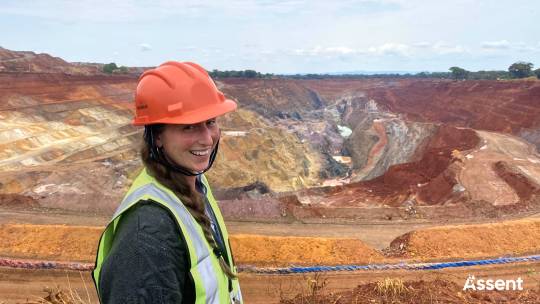Don't wanna be here? Send us removal request.
Text
Excellent article from Cally Edgren about PFAS obsolescence .
0 notes
Text
Assent's Sarah Carpenter on Canada and Forced Labour Laws
As reporting in the WSJ about laws targeting forced labour, Canada has recently passed a law that will require companies to report on their efforts to stop goods made with forced labor from entering their supply chains. This new legislation is aimed at combatting the widespread use of forced labor in the global supply chain, which has been a growing concern among consumers and human rights organizations.
"The growing complexity of laws on reporting and due diligence in supply chains can particularly affect compliance for companies in sectors with complex supply chains, such as electronics, medical devices and industrial machinery" - Sarah Carpenter, director of corporate responsibility at Assent
The law, known as the Supply Chain Transparency on Forced Labour Act, will require companies with over $20 million in annual revenue to disclose their efforts to identify and prevent the use of forced labor in their supply chains. This will include information on the company's due diligence processes, the measures they have taken to address any identified risks, and the results of any audits or inspections conducted.
The new law is seen as a significant step forward in the fight against forced labor, as it will increase transparency and accountability among companies. It will also help to raise awareness about the issue among consumers, and encourage companies to take more proactive measures to ensure that their supply chains are free from forced labor.
The Canadian government has also announced that it will work with international partners to improve supply chain transparency and combat forced labor globally. The government also plans to invest in programs to support vulnerable workers and to provide training and education to help companies meet the new reporting requirements.
Overall, the Supply Chain Transparency on Forced Labour Act is a strong and important step towards ensuring that all goods entering Canada are ethically sourced and produced without the use of forced labor. It will not only help to protect the rights of workers but also promote responsible and sustainable business practices in Canada.
0 notes
Text
Article: What the DRC Taught Me About Resiliency, Cobalt & the Future of Sustainability - Jamie Wallisch

Jamie Wallisch is an expert on responsible sourcing at Assent. Jamie helps complex manufacturers analyze their supply chains for ESG risks, particularly conflict minerals, child labor, and other human rights issues.
Her research took her to the Democratic Republic of the Congo to assess mining practices in person. Jamie tells her story here.
2 notes
·
View notes
Text
Assent
Supply chains weren’t built with sustainability and product compliance in mind. Assent’s solutions helps you get ahead of regulations to set a rock-solid foundation for supply chain sustainability.Assent Our Social pages: twitter linkedin facebook youtube
1 note
·
View note